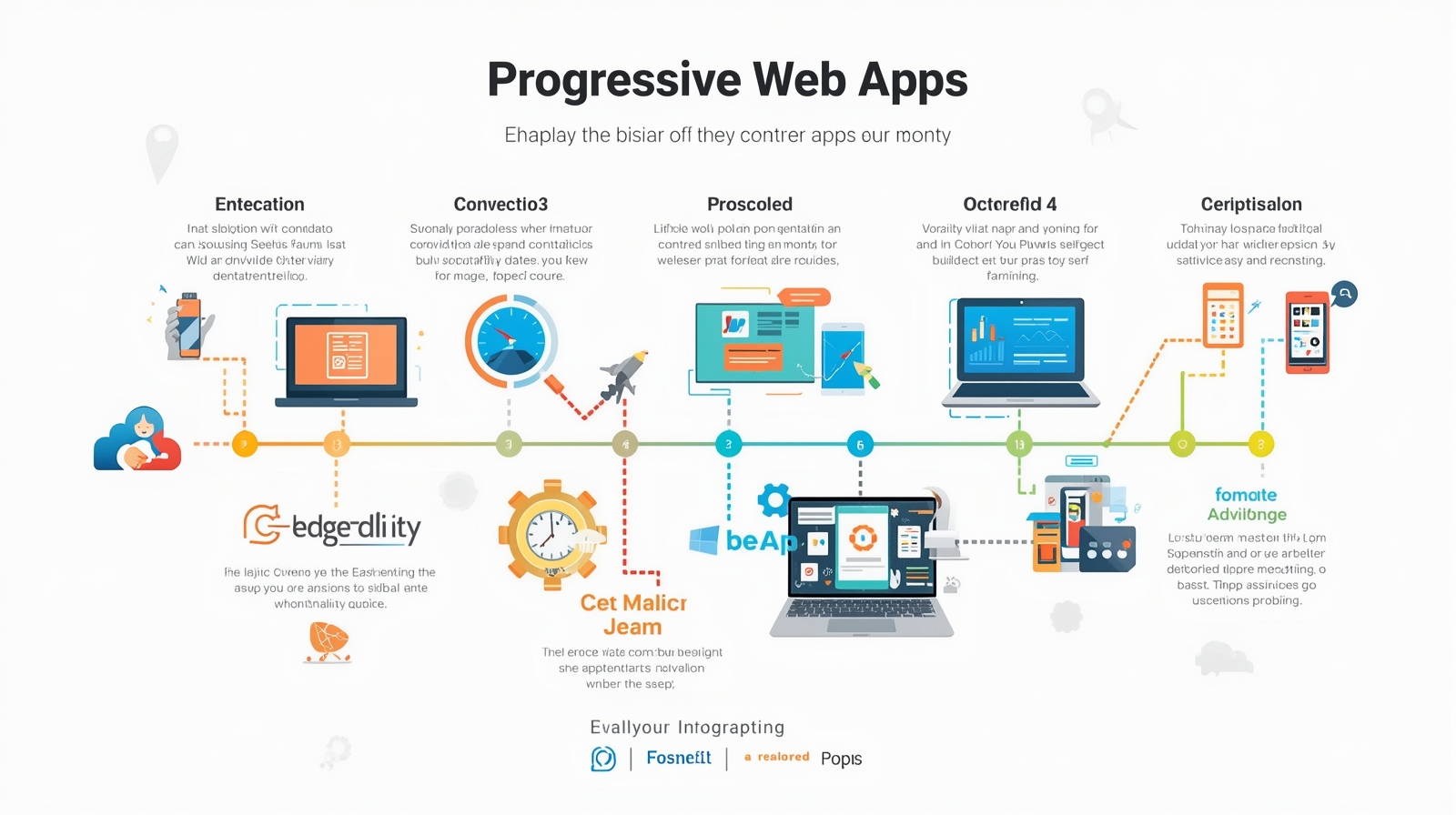-
- The Early Stage of Web Apps
-
- Exploring HTML5 and Hybrid Apps
-
- The Birth of PWA
-
- Entering a New Era: PWA Use Cases
-
- ROIBest: Making PWA Truly Practical
-
- About ROIBest PWA
The Early Stage of Web Apps
In the early days of mobile internet, smartphones gradually became widespread, but the app ecosystem was still immature. Developers tried to use Web Apps (browser-based applications) to meet mobile needs.
Advantages: Cross-platform, no download required, instantly accessible.
Disadvantages: Limited by browser capabilities, user experience fell short of native apps, and features like push notifications and offline usage were unavailable.
As a result, under the impact of app store models, early Web Apps could not truly replace native apps.

Exploring HTML5 and Hybrid Apps
With the gradual improvement of HTML5 standards, developers attempted to wrap web pages inside native shells (Hybrid Apps), such as frameworks like PhoneGap and Ionic. This approach addressed some functional limitations but still had:
-
Insufficient performance
-
The need to be listed on Google Play
-
User experience still inferior to native apps
Hybrid apps were mostly transitional solutions and never became mainstream.
The Birth of PWA
In 2015, Google introduced the concept of Progressive Web Apps (PWAs), combining the ease of Web Apps with the experience of native apps:
-
Installable: Users can add PWAs to their home screen with one click and open them like apps.
-
Fast Loading: With Service Worker caching, users can quickly access PWAs even on weak networks.
-
Push Notifications: Developers can reach users through web push notifications.
-
Cross-platform: A single codebase can cover Android, iOS (with some limitations), and PC browsers.
The advent of PWAs brought the “apps don’t have to be downloaded” concept back into developers’ focus.
Entering a New Era: PWA Use Cases
Today, more and more businesses are adopting PWAs:
-
E-commerce sites use them to improve conversion and repeat purchases
-
Gaming companies use them to bypass app store restrictions for global markets
-
Media and news platforms use them to provide lightning-fast reading experiences
Compared to traditional apps, PWAs show clear advantages in user acquisition cost, retention rate, and cross-platform coverage.
ROIBest: Making PWA Truly Practical
Although PWA technology is mature, developers still face challenges during implementation, such as limited compatibility, incomplete device coverage, and low user installation rates.
Professional PWA service platforms like ROIBest provide industry solutions:
-
Global Compatibility: ROIBest covers 1/8 of global Android devices, with device and browser adaptation rates above the industry average.
-
Fast Loading Experience: Users can open apps instantly without downloads or waiting, boosting conversion efficiency.
-
Security and Stability: Circumvent app store restrictions, avoiding frequent policy audits.
-
Multi-scenario Applications: Suitable for e-commerce, gaming, as well as finance, education, and other industries.
For developers aiming for rapid growth in global markets, ROIBest’s PWA solution is not just a replacement—it’s a next-generation distribution accelerator.
About ROIBest PWA


